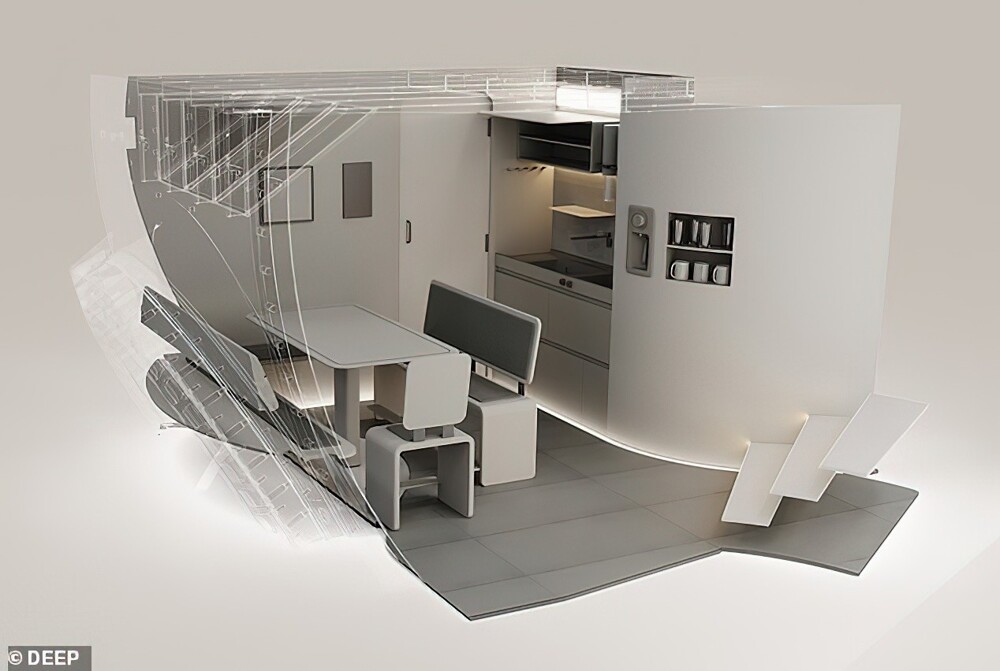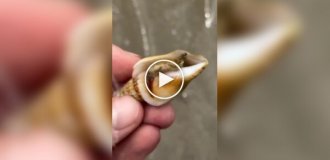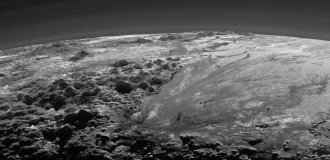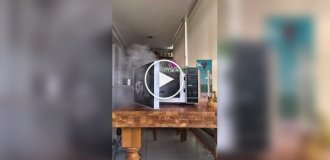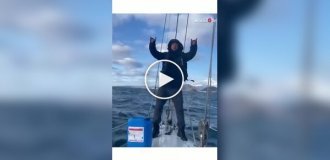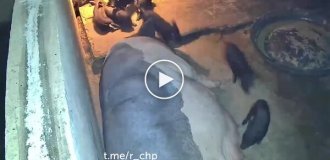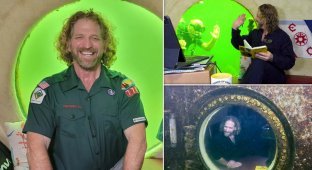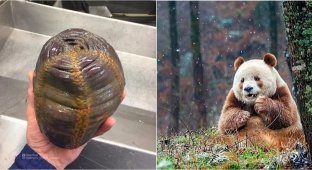Off the coast of Wales, they want to build an underwater academic campus (8 photos + 1 video)
British oceanographers from DEEP Research Labs spoke about their plans to build an underwater scientific base at depth 200 meters, in the so-called epipelagic zone. This is the top layer of the sea to a depth of 200 meters, which is home to 90 percent of marine organisms. 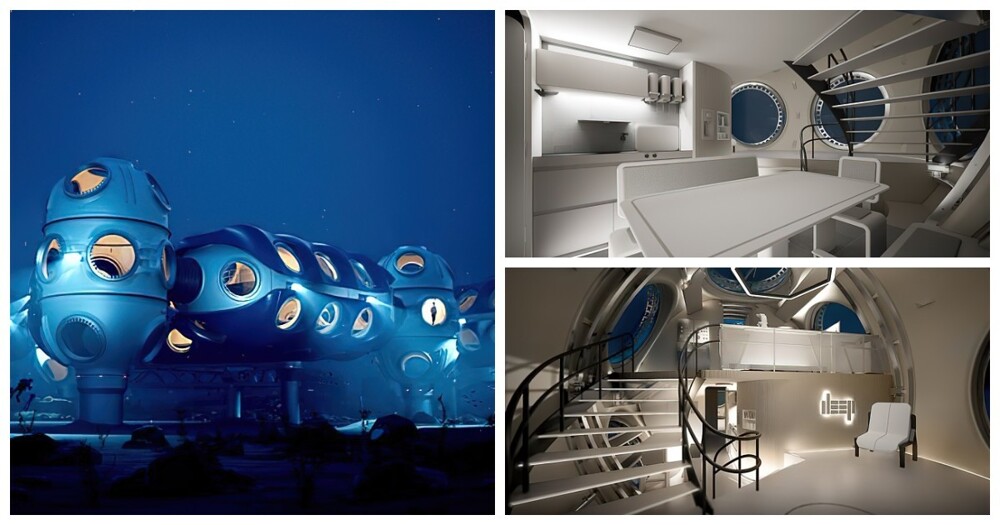
The thought of living in a capsule under the water for months, can scare any claustrophobic. But this idea can be reality in just three years, if the British company DEEP Research Labs will build the Sentinel™ Subsea Base for marine research.
It is assumed that such an "academic town" can be built at a depth of 200 meters off the coast of Wales. Scientists will be able go there on business trips for up to 28 days. 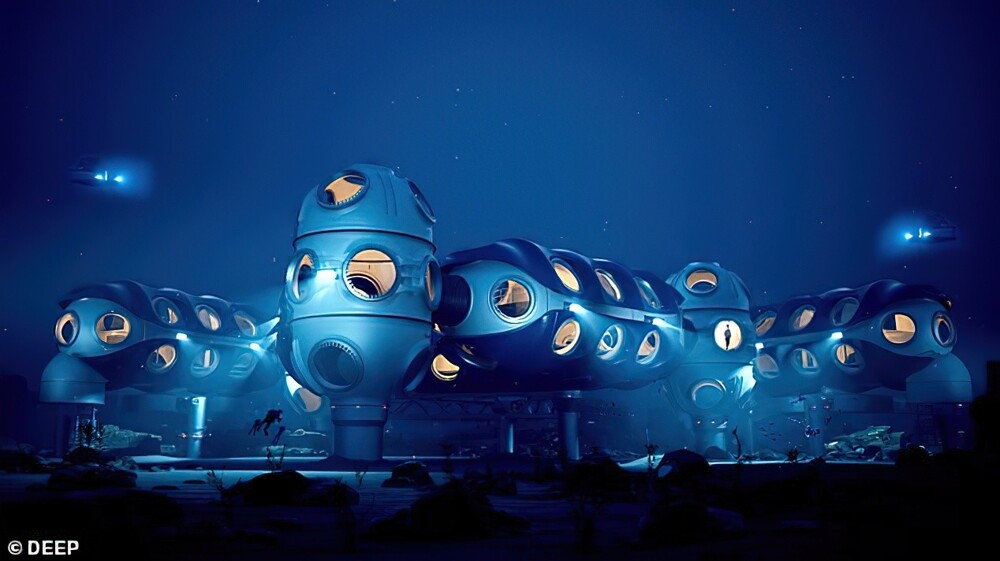
The modular Sentinel™ system will provide extended access to epipelagic zone, which is believed to contain 90 percent sea life.
The system provides ample opportunities for life and work under water. It is highly configurable and adaptable for deployment in any point of the continental shelf and on any scale - from a small stations with 6 crews to a large station with 50 crews. Creators especially note its safety, efficiency and cost-effectiveness.
“The ability to comprehensively explore the entire length this part of the ocean, and not just make incursions from the surface, will represent a step forward in how scientists can observe, control and understand the oceans,” the company said. 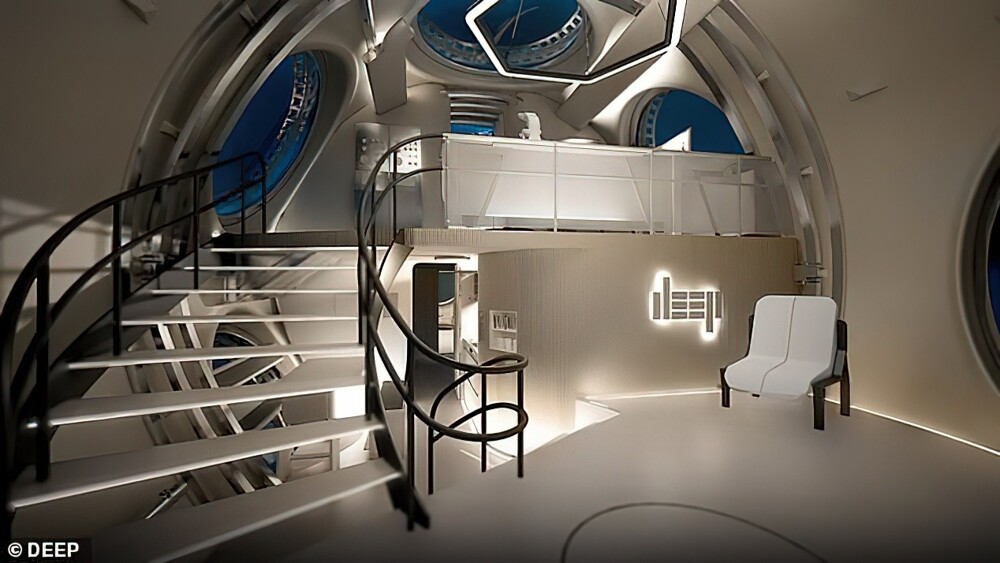
The Sentinel™ system has been designed to operate at one atmosphere or at atmospheric pressure. On the Sentinel it will be possible make short visits with the help of a submarine, which is ideal Suitable for scientists and non-diving professionals. 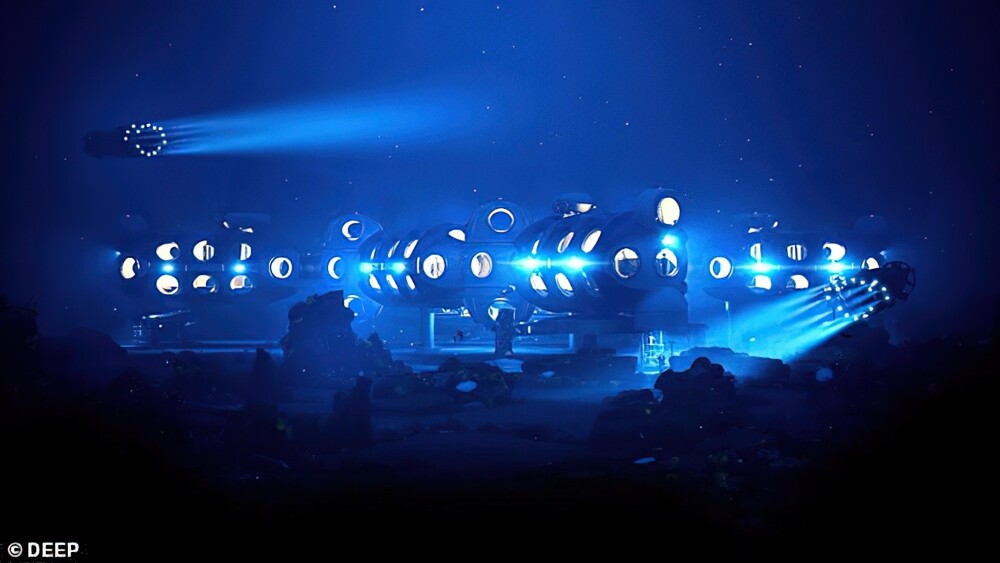
The epipelagic zone is often referred to as the sunshine zone, it extends from the surface to a depth of 200 m). It is in this zone contains most of the visible light. With it comes the warmth of the sun, which is responsible for the wide fluctuations in temperature in this zone, as in depending on the time of year, and depending on the latitude. Temperature sea surface ranges from 36C in the Persian Gulf to -2C near North Pole. 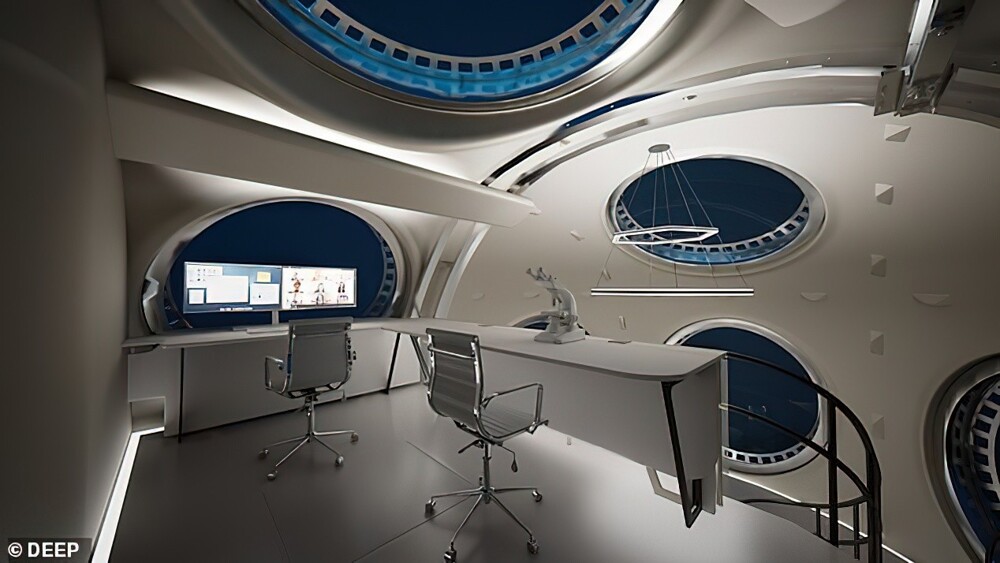
To date, scientists can explore this zone with using underwater vehicles, but in them they can remain under water only a few hours. In the case of the creation of an underwater scientific base Sentinel researchers will have opportunities they never had before. 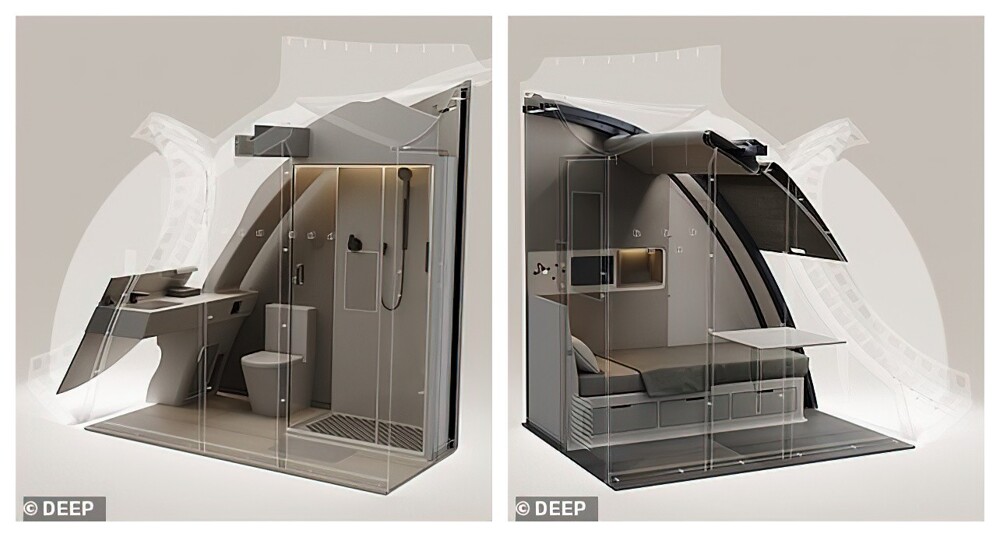
“We need to save the oceans. For this we need them understand,” says DEEP President Steve Etherton. - Oceans are at the center of many of the generational challenges facing world, and they also offer opportunities that we haven't even started realize. They are the source of at least every second the breath we take. They affect the weather. They affect the climate. They influence us. However, this life-supporting ecosystem remains surprisingly unknown. Thanks to our innovative DEEP technology, scientists will be able to work at depth for extended periods of time, and we hope that this is to some extent degree will contribute to our understanding of this life-giving environment.” 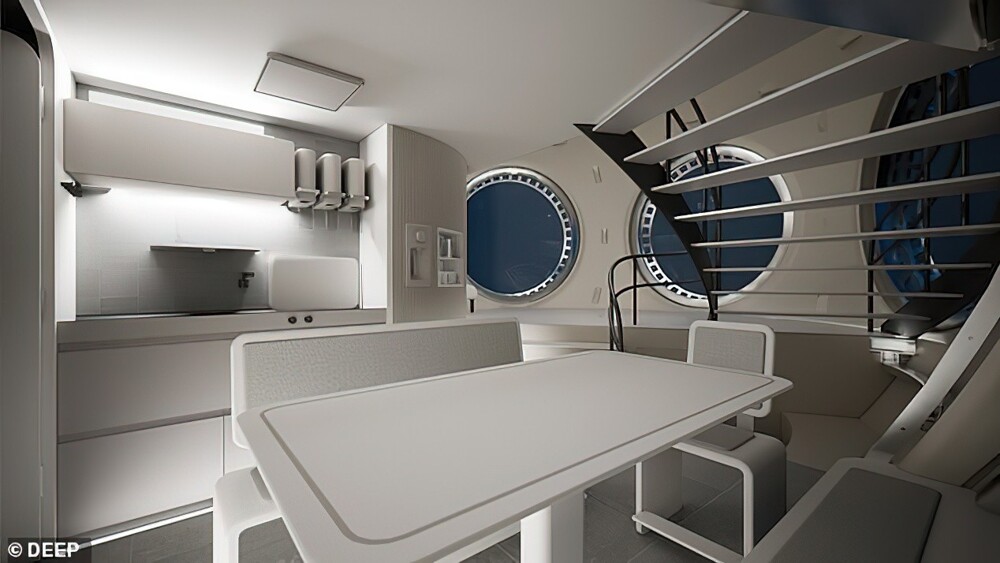
Project Sentinel™ images show what will be at the base central main hall with laboratories above it. Scientists will live in separate single "cabins", small, but equipped with everything necessary (bed, table, storage space, sink, toilet, shower). The galley has a dining table, a kitchen and large windows overlooking the sea bottom. 